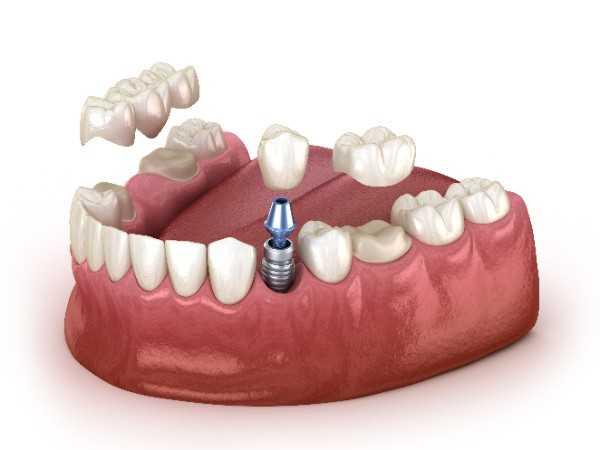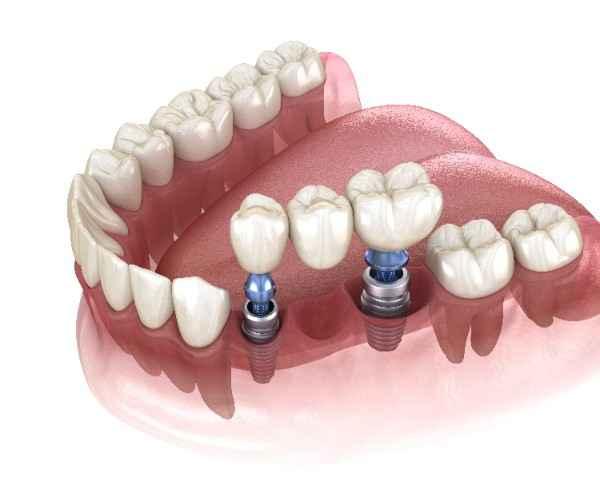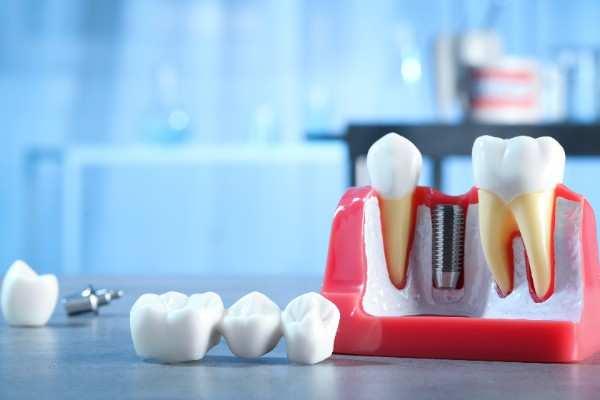Dental implants have revolutionised modern dentistry, offering a long-lasting solution for missing teeth. Unlike traditional dentures or bridges, implants provide stability, comfort, and a natural appearance. However, the longevity of dental implants isn’t solely determined by the procedure itself. Various factors, from the material used to lifestyle habits, play a significant role in ensuring these restorations last for decades.
Understanding what impacts implant durability is essential for anyone considering this transformative dental solution. By exploring these factors, patients can make informed decisions and take proactive steps to maximise their dental investment.
Quality of the Implant Material
One of the first considerations for implant longevity is the material used. The majority of dental implants are made from titanium or zirconia, both biocompatible materials that integrate well with the jawbone. Titanium has long been the gold standard due to its strength, durability, and high success rate. Zirconia, on the other hand, offers a metal-free option, ideal for patients with metal sensitivities or aesthetic concerns.

Key Points About Implant Material:
- Titanium is proven for strength and osseointegration.
- Zirconia provides a natural, tooth-like colour and is highly biocompatible.
- Certified, high-quality implants reduce the risk of rejection or failure.
Using a reputable product ensures that your implant can withstand the forces of daily use while maintaining structural integrity for many years.
Bone Health and Jaw Structure
Successful dental implants rely heavily on sufficient bone support. Without adequate bone density and volume, an implant may fail to integrate properly, leading to complications or early failure.
Factors Related to Bone Health:
- Bone Density: Thicker, denser bone provides a more stable foundation.
- Bone Loss: Conditions like osteoporosis or previous tooth extractions can reduce bone availability.
- Bone Grafting: In cases of insufficient bone, grafting or sinus lifts may be necessary to ensure long-term success.
Consultation with a specialist allows evaluation of the jaw structure and appropriate planning, increasing the likelihood of a durable outcome.
Oral Hygiene and Daily Care
Even the strongest implant can fail if oral hygiene is neglected. Regular cleaning around implants is critical to prevent infections such as peri-implantitis, which can compromise the surrounding bone.
Essential Daily Practices:
- Brushing at least twice a day with a soft-bristled toothbrush.
- Flossing or using interdental brushes to remove plaque between implants.
- Attending routine check-ups and professional cleanings to monitor implant health.
By integrating these habits into daily routines, patients ensure their implants remain healthy and functional for years.
Lifestyle Factors
Certain lifestyle choices can directly affect how long a dental implant lasts. Being mindful of these factors can prevent premature failure.
Impactful Lifestyle Habits:
- Smoking: Impairs healing and increases the risk of infection.
- Alcohol Consumption: Excessive intake can affect bone healing.
- Diet: A nutrient-rich diet, high in calcium and vitamin D, supports bone and gum health.
Patients who take a proactive approach to healthy living often enjoy longer-lasting results with fewer complications.
Bite and Chewing Forces
Excessive bite force or bruxism (teeth grinding) can place undue stress on implants, potentially leading to fracture or loosening over time.
How to Protect Your Implant:
- Night Guards: Protect implants and natural teeth from grinding damage.
- Bite Adjustments: Correcting misaligned bites distributes pressure evenly.
- Moderation of Hard Foods: Avoid biting overly hard items like ice or hard sweets.
Managing chewing forces ensures that implants remain stable and functional.
Professional Expertise and Surgical Technique
The skill of the dental professional placing the implant has a significant impact on its longevity. Accurate planning, precise placement, and proper post-operative care all contribute to durability.
Key Considerations:
- Experienced Practitioners: A qualified dentist understands anatomy, materials, and surgical techniques.
- Pre-Surgery Planning: Thorough evaluation of bone, bite, and health ensures optimal placement.
- Post-Surgery Care: Follow-ups and guidance on healing improve long-term outcomes.
Many patients seek guidance from an Emergency dentist in Swansea, who combines emergency dental care with specialised implant procedures, ensuring both safety and effectiveness.
Medical Conditions and Medications
Certain health conditions and medications can influence the success of dental implants.
Conditions to Consider:
- Diabetes: Uncontrolled diabetes may slow healing and increase infection risk.
- Autoimmune Disorders: May affect bone integration and recovery.
- Osteoporosis: Weakens bone and can impact implant stability.
Medications: Some drugs can affect bone density or healing capacity. Patients must share full medical histories with their dental provider to ensure safety and success.
The Role of Nutrition in Implant Success
Nutrition plays a vital yet often overlooked role in ensuring the longevity of dental implants. The body requires essential nutrients to support bone health, tissue repair, and overall oral recovery after implant surgery. A balanced diet helps the jawbone integrate with the implant and prevents complications like delayed healing or infection.
Key Nutritional Considerations:
- Calcium: Strengthens bones and supports osseointegration.
- Vitamin D: Enhances calcium absorption and bone mineralisation.
- Protein: Supports tissue repair and recovery.
- Vitamin C & Zinc: Promote healthy gums and reduce inflammation.
Patients who maintain a nutrient-rich diet in the weeks before and after implant placement often experience faster healing and improved long-term success. Combining proper nutrition with professional care from an Emergency dentist in Swansea maximises the durability of dental Implant Swansea.
Maintenance and Longevity
Even after successful placement, implants require ongoing care to maintain durability. Regular monitoring, professional cleaning, and healthy habits are essential.

Maintenance Tips:
- Schedule routine dental check-ups every 6–12 months.
- Follow personalised oral hygiene advice from your dentist.
- Address early signs of gum inflammation or discomfort promptly.
With consistent care, dental implants can last decades, often becoming a permanent solution for missing teeth.
Conclusion
The longevity of dental implants depends on a combination of factors, including material quality, bone health, oral hygiene, lifestyle, and professional expertise. Taking proactive steps in each area ensures that implants remain functional, attractive, and comfortable over time. Choosing a qualified and experienced practitioner, following post-operative care, and maintaining good oral habits significantly improve success rates.
For patients in Swansea, professional guidance ensures that each implant is placed with precision, care, and long-term durability in mind. Consulting a trusted provider in Swansea enables patients to achieve a confident smile that lasts.



